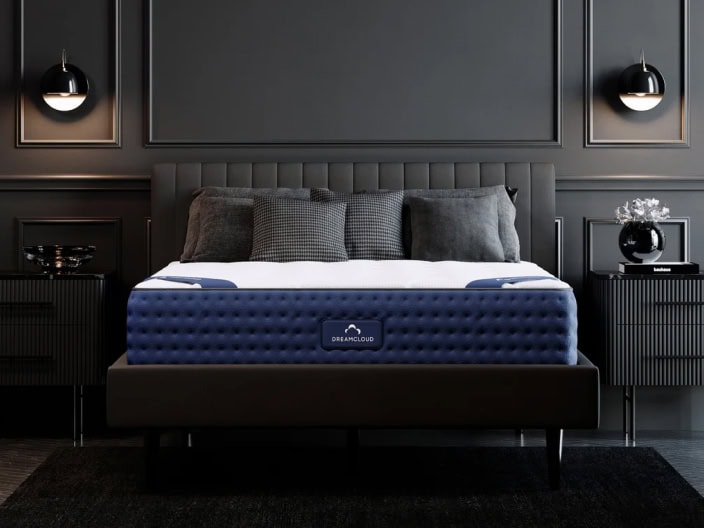How to Wake Up Early: 8 Tips from Experts
Share
Fact checked
Reviewed by experts
Updated
December 15, 2022
Quick read
6 mins to read
List of Content
“Ahh, I’m again late for work. Why can’t I wake up early? How to go to sleep earlier? Why is it so hard to wake up?” These are the most common thoughts occurring daily in our minds. Factors can range from caffeine, sugar, anxiety, or even party mood.
Further below in the article, let’s go into why one can’t sleep and wake up on time and ways to wake up without an alarm clock ticking off.
8 Best Tips for Waking Up Early
Let’s take a detailed dive into the tips on how to wake up on time and be an early riser.
Tip 1: Change your sleep cycle.
There is an old saying- Early to bed and early to raise a healthy, wealthy, and wise man. The best way to implement this in your daily routine is by training your body to change its sleeping schedule. You can alter your sleeping cycle by setting a bedtime much earlier than usual. It might take a few days of uneasy feeling, but you’ll naturally wake up on time once you sleep in early. Humans need 7 to 9 hours of sleep, and anything less regularly can disrupt your brain and body functioning in general.
Tip 2: No Tech for 30 minutes
If you want to know how to go to bed early, the simple thing to do is unplug from all technology 30 minutes before sleep. Keeping your phone aside and switching to a book or journaling is the most effective way to ease your mind and get a good night’s sleep. When this happens, your body’s natural sleeping cycle awakens, and you wake up naturally in the wee hours of the morning. But, according to the experts, the blue light emitted from the screens can disrupt our sleeping patterns.
Tip 3: Cut out late-night snacking.
Some suggest that late-night snacking can reduce the heavy urge of hunger throughout the night and affect your capacity to wake up energized the next day.
Studies have shown that late-night snacking results in restlessness, leading to lesser sleep and more wakefulness. One should rather save up this stomach for a healthy breakfast instead. Late-night snacking can also lead to acid reflux,
Tip 4: Retrain the consumption of sugary energy drinks and caffeine
Intake of caffeine, sugary drinks, and caffeine at night is one of the most common reasons one cannot sleep early and wake up with a restless body. These drinks give an extra boost of energy and push, leading to lesser sleep. On the other hand, it is scientifically stated that drinking a cup of warm milk can induce better sleep at night and prompt you to wake early.
Tip 5: Put your phone on silent.
One of the best ways to wake up early in our tech-savvy generation is to keep your phone silent while sleeping at night for a peaceful and undistributed sleep.
Tip 6: Avoid late-night work or party scenes.
You might think that being awake until 5 am to complete your presentation is the right choice, but it isn’t. Doing an all-nighter will keep you exhausted for the next day’s work or schedule and give underlying anxiety to your brain. Additionally, one shouldn’t munch more while pulling an all-nighter as it may lead to restlessness at night.
Tip 7: Open your curtains and sleep.
Sleeping with your curtains open is one of the easiest remedies for getting up early. Sunshine pouring in from the windows is one the best ways to wake up in the morning, leading to a cozy and positive day.
Tip 8: Keep your alarm clock at the end of the room.
If you think you can’t wake up early, then another effective measure to tackle this is to keep your alarm clock across the room. As soon as it rings, you have to get up from your bed to switch it off.
Causes of Not Waking Early in the Morning
External factors like food Intake, usage of technology, all-nighters, or caffeine amount, and some internal factors lead to tiredness in the body.
Cause 1: Episodes of sleepwalking, sleep talking, and even phobia of the night or no light can lead to one waking up late.
Cause 2: Sleep apnea is where one experiences periods of stopped breathing and interrupted inhaling of breath.
Cause 3: Deprivation of sleep or having less sleep according to your age and body needs can lead to sleep deficiency and thus stops you from being an early riser.
Cause 4: Overthinking and unnecessary thought processing can lead to anxiety and sleeplessness. No wonder social media is one of the biggest culprits responsible for disrupting sleeping patterns in millennials.
Cause 5: Conditions like insomnia and depression can lead to excessive sleeping during the daytime and wakefulness throughout the night.
Cause 6: Chronic pains in the shoulder or back can lead to difficulty sleeping at night.
Cause 7: Heavy medications and certain beta-blockers and muscle relaxants lead to no sleep at night.
Benefits of Waking Up Early
As they say, “early to bed, early to rise, makes a man healthy, wealthy and wise,” this eons-old saying rings true in its score as waking up early has myriad benefits to count upon, right from better immunity to balanced hormonal health. The advantages are countless, and here are some of the reasons why waking up early is a potential boom for you and your body.
Benefit 1: Increased organizing skills
When one wakes up early in the morning, they have extra hours. One can use these hours to organize their day ahead and plan out what one needs to do during the day forward.
Benefit 2: Healthy breakfast
Waking up early will make you feel hungry early, and as the saying goes, breakfast is the most important meal of the day. One can have ample time to prepare and eat a healthy breakfast, and one can have a positive day to look out for.
Benefit 3: Regular exercise
We regularly plan to exercise in the evening, but schedules are often haywire. Rather one can rise early and have those extra peaceful morning hours to themselves for a good stretch.
Benefit 4: Smooth way to work
When you get up early, you leave early from home for your work, and you will get much less traffic and empty roads. In addition, reaching 10 minutes before time to the office gives an individual time to have a steady and planned day at work.
Benefit 5: No stress
As one wakes up early, they complete their meal prep, exercise, and planning way before their busy work hours start. This leads to one having a peaceful and no stress throughout the day.
Benefit 6: Sleeping schedule
Waking up on time leads to a healthy one. An individual’s body is ultimately tired by 8 to 9 pm. Thus, one must sleep on time.
How Much Sleep Do You Need?
Conclusion
Depending on various internal and external factors, waking up early might be a struggle for most people. Different ages of people need varied hours of sleep. So, if you want to know how long it takes to wake up early in the morning and change your sleeping cycle, the answer is 2-3 weeks. Besides, fixing our phone habits, eating habits, and sleeping schedules will lead to waking up early and automatically alter your natural sleeping cycle.
FAQs
Some of the signs of not getting enough sleep are:
- Being irritated frequently and less interested in talking to people.
- Interests in sexual activity have reduced.
- You have a tough time remembering things and tasks.
- Getting out of bed in the morning is a task for you.
- Need late sleep during weekends.
It usually takes 30 days to 60 days to curate a new sleeping schedule. The body embodies this new sleeping pattern, and one does not even need an alarm clock to get up in the morning once this sleeping style is adopted.
Sun rises at different times in different regions. Doctors suggest that waking up before the sun rises leads to a more productive and positive day. Usually, the best time to wake up is between 6 am to 7 am. One gets to do all things in leisure and with no haste with ample time at hand.
As with sleeping, the cycle is completely subjective depending on the age and phases of life. Usually, adults need 7 to 9 hours of sleep daily for the healthy functioning of their body and mind. Toddlers and the elderly need more sleep than average adults.
The research says that the optimum time to sleep is between 9:30 pm to 11 pm. Sleeping at the right time provides a pace for the next day’s systematic schedule and gives positive sunlight exposure and circadian rhythms.
This website does not offer medical advice nor professional medical services; rather, it is provided solely for educational, informational, and/or entertainment purposes. Individuals seeking medical advice should consult a licensed physician. The information provided should not be used for diagnosis or treatment of any condition, disease, or injury. When you have a medical condition, you should always talk to licensed doctor or other certified medical professional. You should never delay seeking professional medical advice or treatment based on the contents of this website. Call 911 or immediately go to the nearest emergency room if you think you may have a medical emergency. The contents of this website are provided “as-is”, Sleep Authority and its parent, subsidiaries, affiliates, employees, contributors disclaim any warranty of the information contained herein. Please contact using contact form to report any errors, omissions, misinformation, or abuse.
Sleep Authority is brought to you by Resident, the company that brings you Nectar, DreamCloud, Awara, Wovenly, Bundle, Home Well Designed and Level Sleep.




